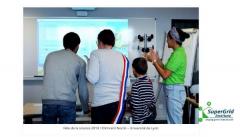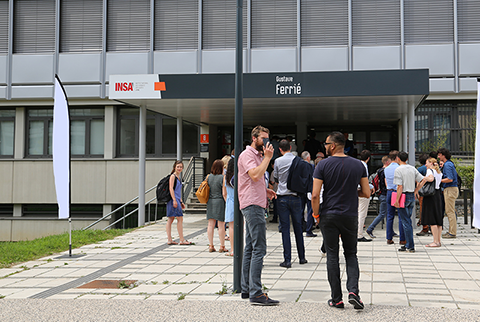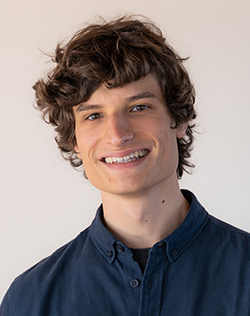
Sciences & Société
[Atelier] : « Survival game », jeu sérieux sur le mix énergétique
Apprendre à sauver la planète et gérer le réseau électrique en jouant Survival Game
Apprendre à sauver la planète et gérer le réseau électrique en jouant Survival Game est un jeu interactif centré sur les actions qu'il convient de mener pour gérer le réseau électrique et ainsi contribuer à sauver la planète du réchauffement climatique.
Les joueurs doivent gérer le mix énergétique et résoudre des énigmes pour développer des technologies et intégrer les énergies renouvelables dans le réseau électrique. Jeu créé par le Supergrid Institute
Additional informations
- scd.animation@insa-lyon.fr
-
En salle 204/205 - 2ème étage de la Bibliothèque Marie Curie
Keywords (tags)

Sciences & Société
[Atelier] : « Survival game », jeu sérieux sur le mix énergétique
Apprendre à sauver la planète et gérer le réseau électrique en jouant Survival Game
Apprendre à sauver la planète et gérer le réseau électrique en jouant Survival Game est un jeu interactif centré sur les actions qu'il convient de mener pour gérer le réseau électrique et ainsi contribuer à sauver la planète du réchauffement climatique.
Les joueurs doivent gérer le mix énergétique et résoudre des énigmes pour développer des technologies et intégrer les énergies renouvelables dans le réseau électrique. Jeu créé par le Supergrid Institute
Additional informations
- scd.animation@insa-lyon.fr
-
En salle 204/205 - 2ème étage de la Bibliothèque Marie Curie
Keywords (tags)

Formation
Energy transition: INSA fuels the critical thinking of its students
Resource depletion, greenhouse gas emissions, local pollution... The list of disastrous effects of predominantly fossil-based energy production is no longer a secret. Although the use of renewable solutions currently represents only 11% of total French energy production, there are many future scenarios. Fifth-year students in the electrical engineering department (GE) attended a conference with Marc Jedliczka, spokesperson for the NegaWatt association, which aims to rethink the French energy model.
The NegaWatt scenario
‘Energy is not a goal in itself. The aim is to meet energy needs’. This is how Marc Jedliczka introduced his topic at the recent conference given to fifth-year GE students. The NegaWatt approach can be summed up in three key concepts: restraint, energy efficiency and renewable energies. ‘It’s a common-sense approach. By reducing the amount of energy needed at source for the same service, by prioritising essential energy needs, and by developing renewable energy sources, we can begin to contain runaway climate change. Although the NegaWatt approach does not offer a technological breakthrough, it admits that this same technology can help reduce consumption needs. This is the work of engineers’, says the association’s spokesperson.

Introducing electrical engineering students to alternative means of production
As electricity specialists, these engineering students are undoubtedly concerned by the issue of energy transition. Claude Richard, a lecturer in the GE department at INSA Lyon, explains how engineering students are taught there. ‘To move towards more renewable energy and rationalisation of energy use, we need engineers who understand the energy system as a whole. Since electrical energy is currently one of the main energy carriers, we make it a point of honour to support our students’ reflection, in particular through the ’fifth-year GE industrial conferences’ and business creation projects focused on energy transition with third-year students in the department. The arrival of Marc Jedliczka is also in response to strong demand from students who, feeling increasingly concerned by the climate emergency, wish to open their minds to the use of intermittent energies such as renewable energies. However, these systems require agile and skilled engineers in power electronics, electrical engineering, mechatronics and also the implementation of electronic control and communication systems. The challenges of electrical systems, energy distribution and conversion and related intelligence are key areas of expertise in multidisciplinary GE education and will also be at the centre of future energy upheavals’.

Between vision and concrete actions
Noé Delargillière, an INSA graduate in energy and environmental engineering, joined the Institut NégaWatt 1.5 year ago as a project manager. ‘The Institut NégaWatt is the operational arm of the vision developed by the eponymous association. Today, the building industry is the largest consumer sector in France. My work consists of jointly devising building renovation strategies with local authorities and business park managers. We are working together to reduce energy consumption in order to meet the targets set by law, and to do this, we need to involve decision-makers and teams around important changes. I am an engineer who does consulting - a large part of my job is to make results understandable and help overcome resistance to change. I think that going back and forth between a vision and concrete actions is part of the engineer’s role in energy transition. I am convinced that technology and engineering should no longer be seen as something neutral, but must be part of a long-term commitment and vision because we have decisions to make in the years to come’, concludes the young engineer.

